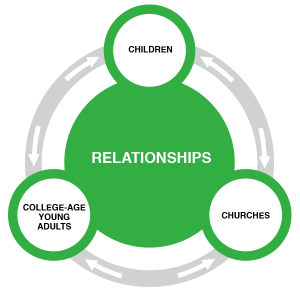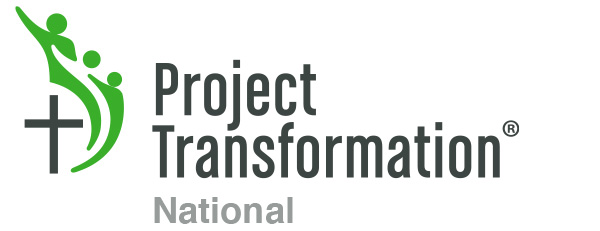Week 2: MUTUAL RELATIONSHIPS
Relationships are the essence of Project Transformation. There are three equal contributors and beneficiaries of our mission. We call them the Three Cs: Children, College-Age Young Adults, and Churches. Mutual relationships between the three Cs are fundamental to the collective impact of the organization. Ali Sokolowski, Program Director at Project Transformation Tennessee and intern alumni states, “PT changes lives. With a focus on relationships, we are learning to appreciate one another’s stories and respond with empathy and action.”
PT Alumni Share Stories of Impact
Powerful call stories shared by Project Transformation young adult alumni. #umcgc #wearemore #youngclergyinitiative
Posted by Project Transformation on Monday, May 16, 2016

Here’s what we believe about relationships at PT:
- We believe relationship IS the intervention and the primary medium for transformation
- We believe relationships are founded on the principle that all are teachers and all are learners
- We believe experiencing God is to encounter and be in relationship with the people God creates and sustains
- We believe relationships—messy, hard, and complicated as they may be—help us see the world through another’s eyes in order to be more whole and fully human
- We believe relationships remove barriers of class, ethnicity, race, gender, and sexual orientation
- We believe relationships allow us to discover individual strengths and uniqueness so we can be who God calls us
Catch the vision of Project Transformation and invest in relationships!
LEARN: Search Institute offers excellent research on what makes a healthy, developmental relationship between adults and youth; this is helpful for parents, youth ministers, coaches, teachers, mentors…you name it! Check out the five essential elements of Developmental Relationships.
ACT: Have ice cream with a youth or young adult in your life. Ask them how God is at work in their life, in their dreams. And, then: actively listen.
REFLECT: Australian aborigine, Lila Watson, once said, “If you have come here to help me, you are wasting your time. But if you have come because your liberation is bound up with mine, then let us work together.” In outreach ministry, it is easy to get caught in the self-righteous tendency to see the role of “helper” as more valuable than the role of the “helped.” Certainly, the “helper”/“helped” dualism leaves much to be desired for the mutual growth and transformation that God desires for God’s people, for none of us is truly whole without the other. Certainly, those on the receiving end of outreach ministry, “the helped,” have been endowed by God with special wisdom and experience that can change the heart and mind of the “helper.” Healthy relationships, even in ministry, are never one-sided since God is actively present in all. In your quiet time this week, thank God for the relationships in your life, for the ways you both receive and give grace and wisdom. Write a handwritten letter or email of thanks to someone from whom you’ve received grace, freedom, healing, and wisdom along your faith journey.




